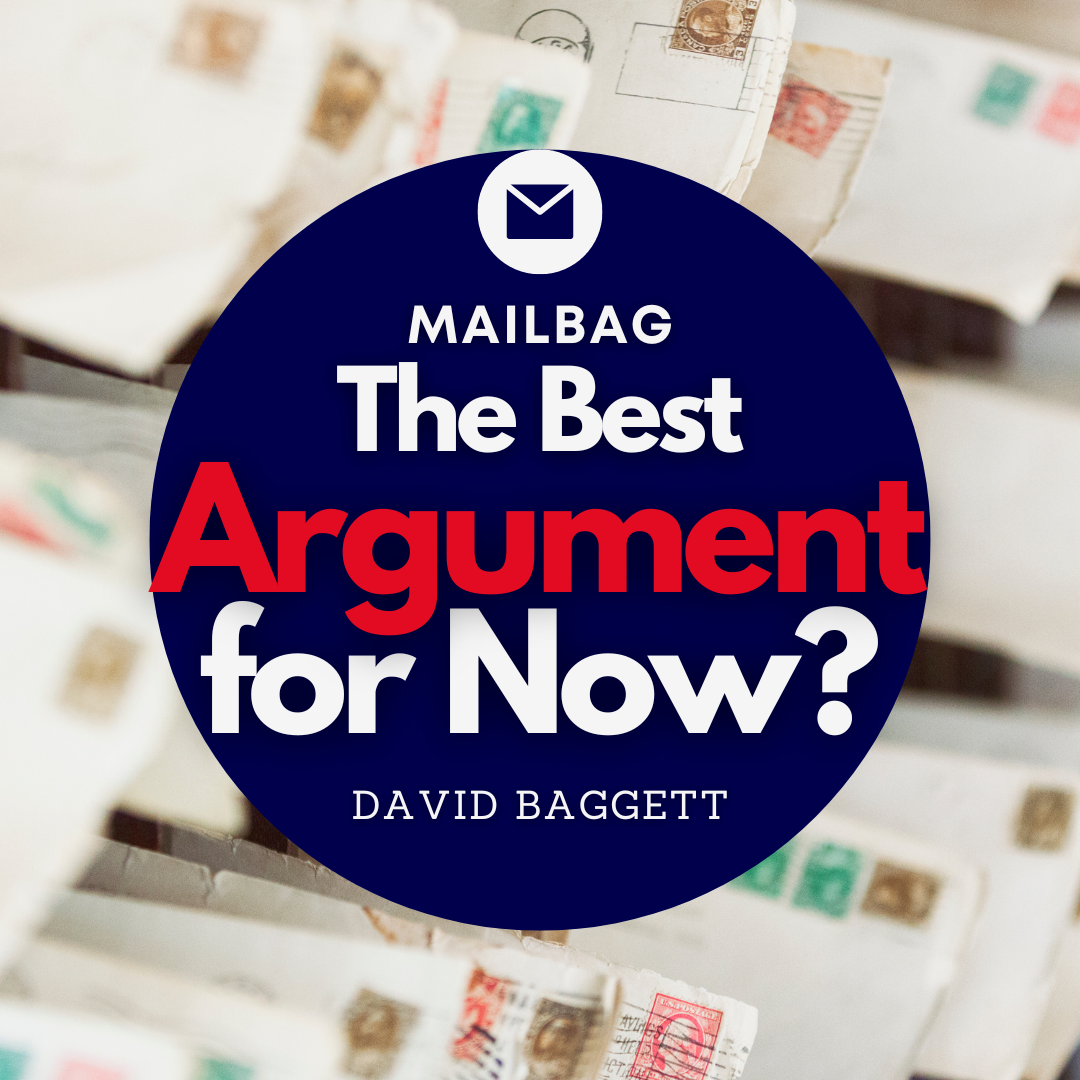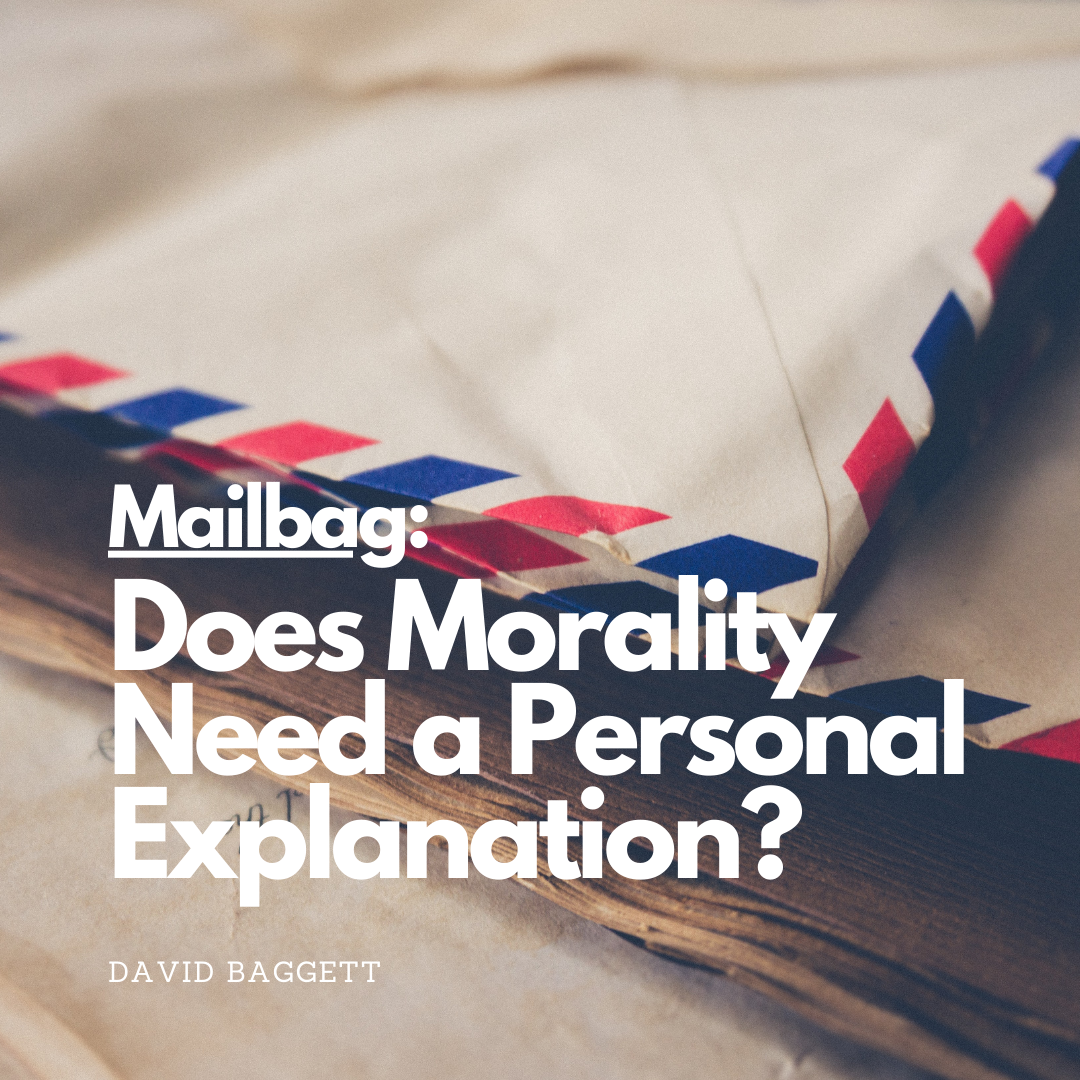Mailbag: The Best Argument for Now? A Question about the Abductive Moral Argument
/James writes:
In Good God, and God & Cosmos, Baggett and Walls argue that William Lane Craig’s deductive argument for morality isn't as persuasive to intellectual atheists, and that abductive arguments are preferred because they are more persuasive to unbelievers as they avoid the problems with the atheological premise of the Deductive Argument. However, what if the atheist were to ask, "Do you mean that's the best argument FOR NOW, or is it possible that there could be a better explanation than your best explanation down the road?" Granted, this objection would be an argumentum ignorantium, but for the Abductivist himself has conceded that his own argument wasn't designed to provide certainty, so how can the Abductivist answer this objection without begging the question that his current explanation is the best explanation, and will ALWAYS be the best explanation?
For the record, I like both arguments. I, however, use the deductive argument more frequently because I haven't been able to have a quality conversation with an unbeliever for any longer than 5 minutes since the 2016 election LOL
In Christ,
James A., PhD
Hi James,
Thanks for your e-mail to MoralApologetics. This is Dave Baggett, co-author of God and Cosmos & Good God. You note that in those books we issue a critical verdict on WLC's deductive moral argument. This is true. And that we talk about how abduction can avoid the atheological premise of the deductive variant. Yes. Then you write, what if the atheist were to ask, "Do you mean that's the best argument FOR NOW, or is it that there could be a better explanation than your best explanation down the road?"
Yeah, I think this is a good question. The nature of abduction seems to leave open the possibility of a better explanation. If we're talking about the BEST explanation, a certain tentativeness seems built in. Otherwise we’d talk of the “best possible explanation,” which some students seem to think abduction means, before I point out that it’s not. If a better explanation comes along, it could unseat the current winner. That seems right.
Of course I can't imagine what that would be in the case of accounting for moral facts. Naturalistic accounts just seem inherently limited, axiarchic approaches seem deficient, pantheistic and panentheistic accounts seem wrongheaded, etc. So though it's theoretically possible there could be a better explanation, it's awfully hard to imagine what it would or could be. It's also the case that our analysis is predicated on Anselmianism, which literally involves a being than whom none greater can be conceived—which makes it all the harder to top when it comes to explanatory potential! 🙂
All that said, I've laid off criticizing Craig's approach in recent years. He and I co-taught a class on the moral argument at Houston Baptist, and I found that our approaches deeply dovetailed at so many points that the number of disagreements in approach seemed small by comparison. And we now have a contract with Baker Academic to write a book together on the subject, one in which we'll be mainly talking about the resonances of our perspectives, not any remaining differences, at least for the most part. (By the way, it was hearing Craig give an argument for the historicity of the resurrection in abductive terms years ago that most inspired me to go that route.)
I've also realized in recent years that talk of "best explanation" is awfully ambitious. I usually rest content with speaking of a robust account, or powerful account, or even adequate account.
Of course, all of this pertains to the matter of how best to couch the moral argument. As long as folks are intelligently pushing the moral argument, which can come in deductive, inductive, abductive, or even other forms (like Evans' Reformed-sounding "natural signs" approach)—or even embodying it by the life they live like Fred Rogers did—I'm happy to hear it and rejoice these important truths are being accentuated one way or another. (The fun aspect of inductive variants is distinguishing between what Swinburne calls P- and C-inductive arguments here: does the moral evidence increase the evidence for theism just a bit, or enough to make it more likely than not?)
Bottom line: What's really great is God himself, not any particular discursive analysis. Proponents of various stripes of the moral argument agree on a whole lot more than they might disagree on, and it’s vital we not lose the proverbial forest for the trees.
I've also seen, at the same time, that a helpful feature of abduction is that, when dealing with an individual, we don't have to take on every potential theory out there. We can just focus on contrasting a theist picture with the picture of morality that our interlocutor provides. This helps delimit the conversation and not have to do more than is practicable in a conversation or two. The ultimate aspirations of abduction when it comes to so heady a topic as ours is a human quest spanning generations to which any of us at most contributes but one voice.
By the way, I’ve started reading a great book—McCain and Poston’s Best Explanations: New Essays on Inference to the Best Explanation. Highly recommended.
Every best wish in your work; thanks for the note.
Blessings,
Dave



















